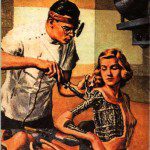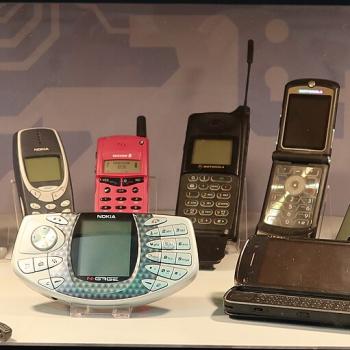That’s the key quote from an article in New York Magazine entitled, “The Real Reason Women Freeze Their Eggs.” The reason offered is this, as quoted by the fertility specialist the author, a woman in her late 30s, sees to freeze her eggs:
“It isn’t you,” he said. “All day long, I see patients like you. You’re smart, beautiful, accomplished, nice. It makes no sense. I go home to my wife and I say, ‘There’s something wrong with the men in this generation. They won’t grow up.’”
And, indeed, her article is a tale of woe: she and her friends, in their 30s, hunting for a man who’s willing to commit to a relationship, to marry and have kids, and ending up in one failed relationship after the next.
But how did she get there? That’s the part of the story where she fails to recognize, well, her own failure: she dated a man from age 24 to 32, but then her mother and grandmother died and, when, shortly afterwards, he asked her to marry him, she broke up with him because
I realized in the wake of my mother’s death was that my sense of what the right relationship for me was — or wasn’t — lacked the normal range of experience. My sense of who I was lacked the normal range of experience. We broke up, when I was 32, because of what I didn’t know as much as what I did.
(Now, the timeline isn’t exactly clear here: she says she was in this relationship for 8 years, but then says a year after they started dating, her mother fell ill, then died three years later, and “not long after” that, he proposed.)
So this is a sad story, as it certainly seems as if her grief over her mother’s death may have caused her to make the mistake of breaking up with this man that she describes so glowingly. Maybe it’s the opposite — maybe she stayed with this man, whom she calls a “lovely person,” because of reasons connected to her mother’s illness, but her professed reason for dumping him (and she doesn’t say this regretfully) is pretty foolish: she “lacked the normal range of experience” = “I haven’t dated enough men.”
Time passes. Maybe in this world in which we control so much about our world — even things as simple as being able to go to the store and knowing that exactly the right ingredients will be there for us, to being able to purchase anything we wish online and track its arrival — people have forgotten that time passes, and that we can’t control it.
And with respect to her dilemma: there simply isn’t enough time, in your 20s, to experience this idealized world of multiple relationships, each teaching you something new about yourself and about the World of Men. (And, just to say it, there is nothing wrong with marrying your First Love.)
And I suppose it’s different for the young’uns, too. Raising children, of course, shows you clearly, from day to day, the passage of time. The boy who was once an infant is now a teenager. But if you’re in your 20s or 30s, and live your life among others without children, perhaps it’s too easy too find yourself feeling as if nothing changes, and you’ll be young forever.
Or maybe she just needs to move to the Midwest. The last wedding I attended was a colleague who was, in fact, in his mid-30s, but was open with everyone that the couple had found each other through eharmony, because they were both looking for marriage rather than just a fling (and he had dumped a prior girlfriend because she, not he, wasn’t ready to settle down).
















